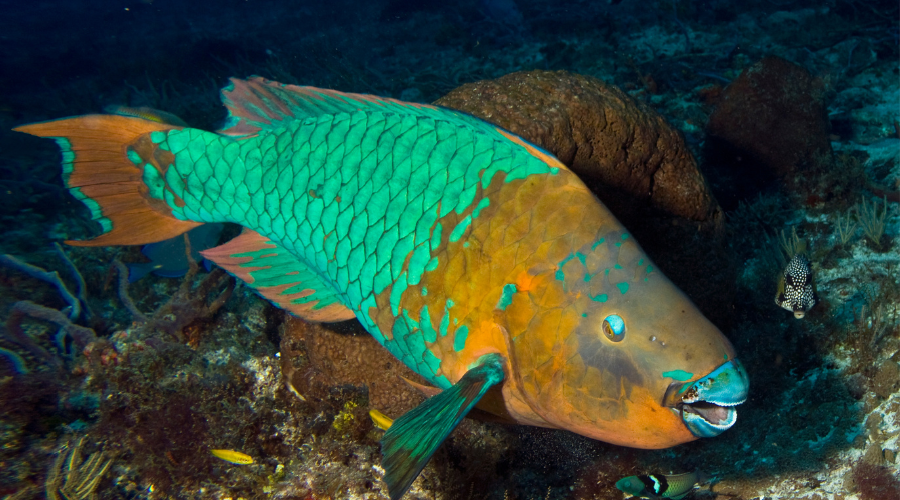Corallivore fish poo is good
For a long time, it has been assumed that herbivores are good for coral reefs and corallivores are bad. Herbivores like surgeonfish and rabbitfish graze the algae which would otherwise overgrow, smother and outcompete corals, and a reef without herbivores is generally thought of as being in poor health. In contrast, coral-eating fish are thought to be bad for reefs, consuming coral tissue and weakening hard coral structures, with no mutual benefit to reefs at all (other than making coral sand.)
But a group of university researchers from the United States analyzed the feces from both herbivorous and corallivorous fish and made a really interesting, fundamental find. That herbivore fish poo is bad for corals, but corallivore fish poo is good. And that’s a big change to what we thought happened before. It could have implications for our reef tanks too.
Lesions
To test it out, the scientists placed coral frags in jars, then subjected them to fecal matter from herbivores, and fecal matter from corallivores. When herbivore poo rested on the coral frags it caused lesions, but when the same was done with corallivore fecal matter it didn’t. It was then repeated but this time with sterilized fecal matter from both fish groups, and no lesions were caused. This then led them to study the bacteria within the fish poo and they found that the herbivore group contained disease-causing pathogens, while the corallivore group actually contained beneficial bacteria – probiotics for corals.
“Corallivorous fish are generally regarded as harmful because they bite the corals,” said Dr. Carsten Grupstra of Rice University, lead author of the study published in Frontiers in Marine Science. “But it turns out that this doesn’t tell the whole story. Corallivore feces contain many of the bacterial taxa that associate with healthy corals under normal conditions, potentially resulting in the natural dispersal of ‘coral probiotics’, analogous to fecal microbiota transplantation therapy in humans. More research needs to be done to test how fish feces affect corals to see how we might use these feces in management efforts to support coral reef health.”
The authors are aware that factors like currents will affect just how and where fish poo will land on corals, and how long it will sit there, but it has us thinking about the dead spots in our own plating Montipora colonies, our grazer-heavy hard coral tanks, and even the ongoing questions about pathogenic bacteria and Acropora. Also, can the same be said of herbivorous invertebrate feces, do medications wipe out that bad gut bacteria in aquarium fish, and as ever, it’s yet more proof that coral reef ecosystems are way more complex and interconnected than we thought.
Sign up for our Newsletter ! Fish, Coral, Plant, Gear and More!
Become Part of Fish Keeper Community

